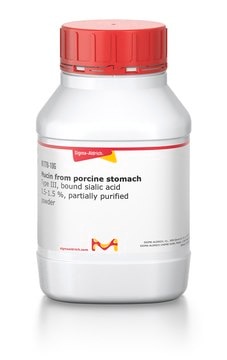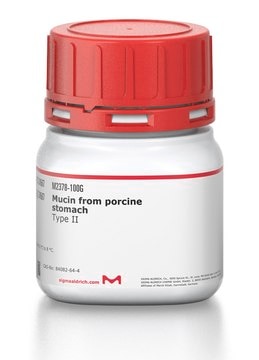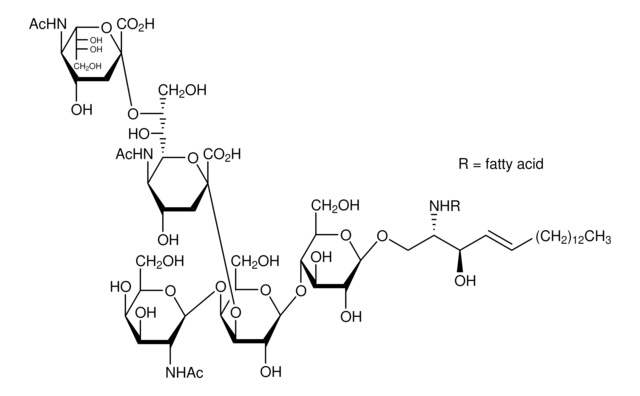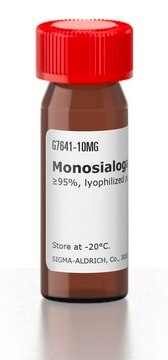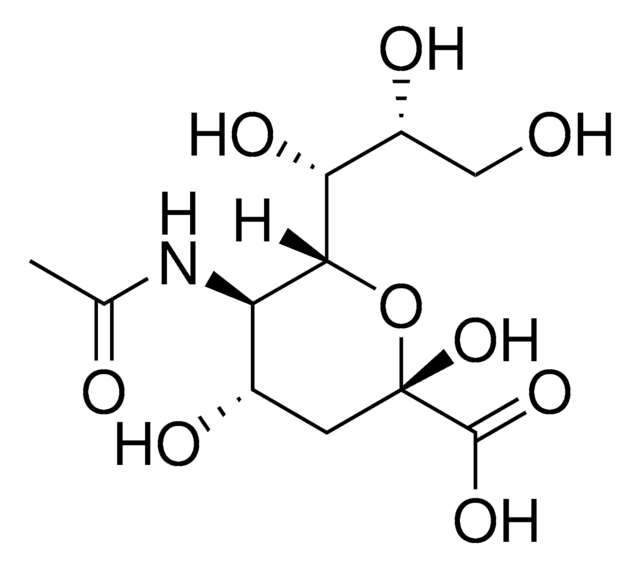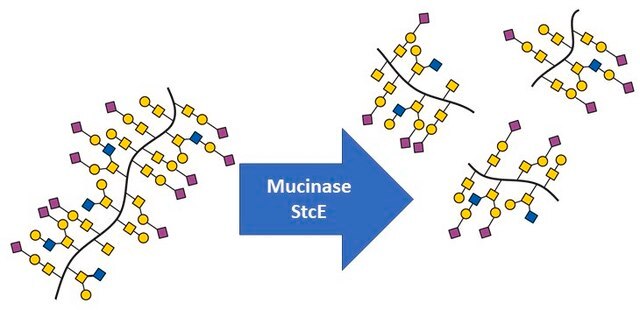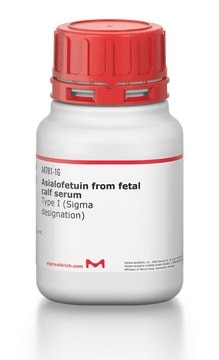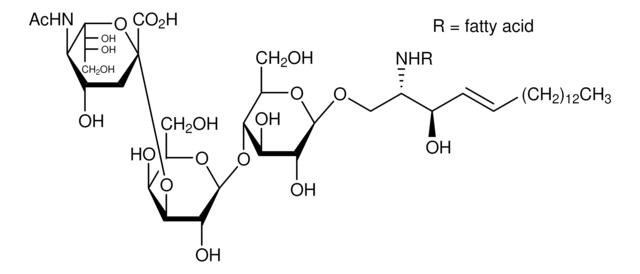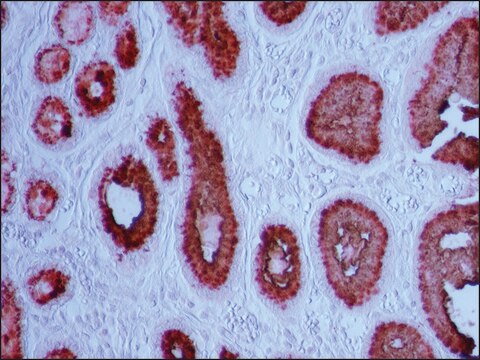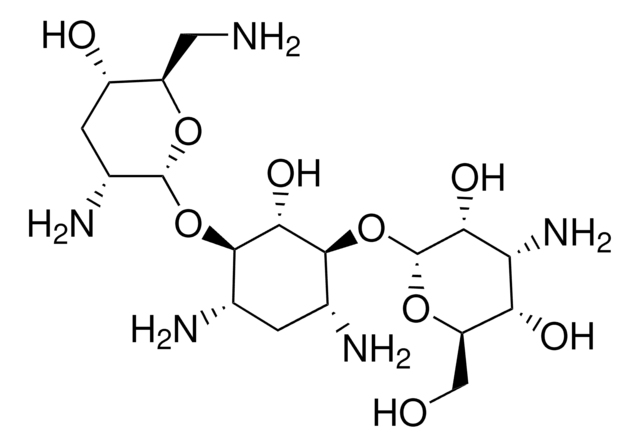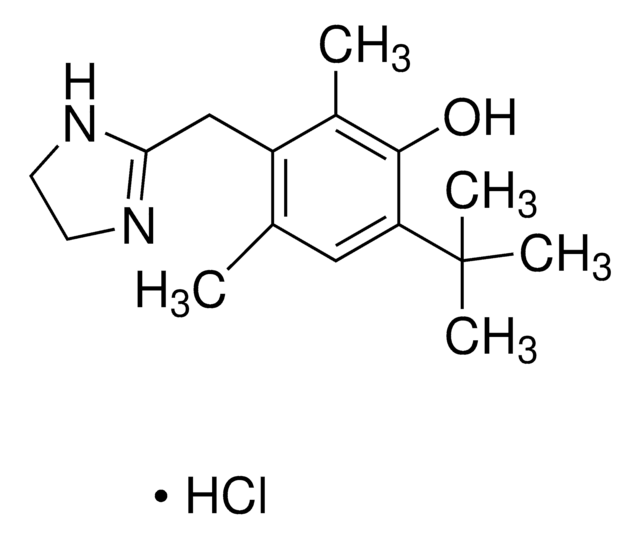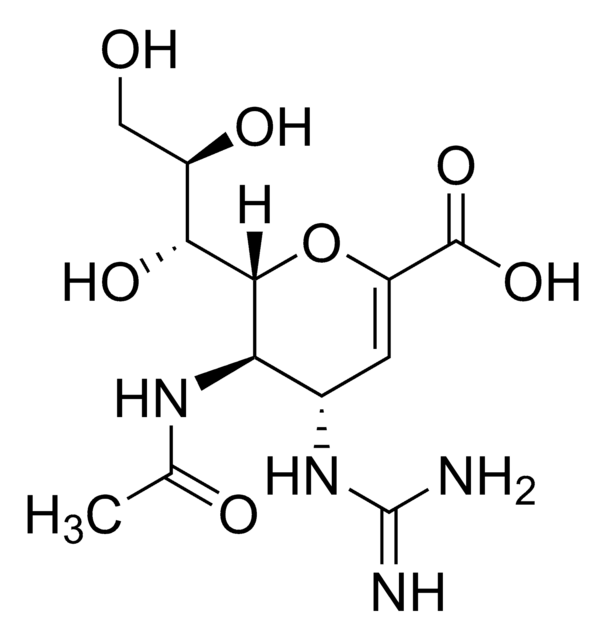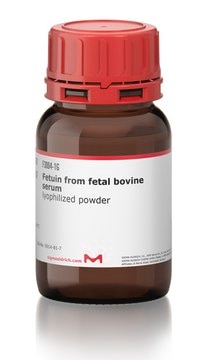M3895
Mucin from bovine submaxillary glands
Type I-S
Synonym(s):
MUC
About This Item
Recommended Products
biological source
bovine submaxillary glands
Quality Level
type
Type I-S
form
powder
composition
Bound sialic acids, 9-24%
technique(s)
electrophoresis: suitable
UniProt accession no.
storage temp.
−20°C
Gene Information
cow ... BSM(286841)
Looking for similar products? Visit Product Comparison Guide
Related Categories
General description
Application
- in the quantification of mucin
- as a component of artificial tear solution
- as a substrate for recombinant sialidase Gardnerella vaginalis
- to investigate a galactose-specific lectin from the red marine alga Ptilota filicina
- to study the characterization of a unique mucin-like glycoprotein secreted by a human endometrial adenocarcinoma cell line (Ishikawa)
Biochem/physiol Actions
Linkage
Substrates
Storage Class
11 - Combustible Solids
wgk_germany
WGK 3
flash_point_f
Not applicable
flash_point_c
Not applicable
ppe
Eyeshields, Gloves, type N95 (US)
Certificates of Analysis (COA)
Search for Certificates of Analysis (COA) by entering the products Lot/Batch Number. Lot and Batch Numbers can be found on a product’s label following the words ‘Lot’ or ‘Batch’.
Already Own This Product?
Find documentation for the products that you have recently purchased in the Document Library.
Customers Also Viewed
Articles
Review article and products for sialic acid synthesis and signaling.
Our team of scientists has experience in all areas of research including Life Science, Material Science, Chemical Synthesis, Chromatography, Analytical and many others.
Contact Technical Service